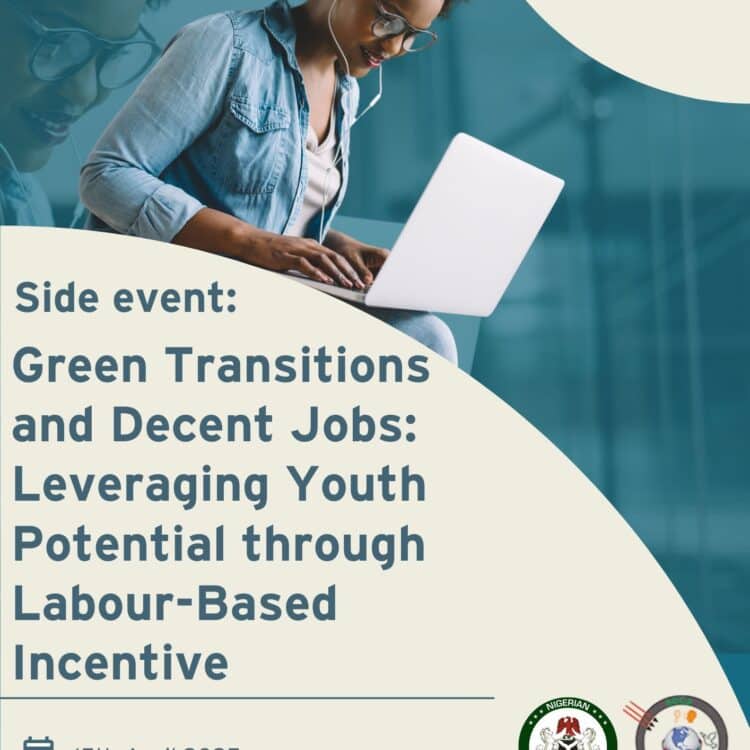
The African continent is undergoing an important demographic transformation that will, for the better or the worse, drastically change its labor market. According to the World Bank, every year 12 million young people enter the job market while only 3 million formal jobs are created. With a median age of 25 years old, the African continent is the youngest in the world.
The African population will continue to grow and double by the middle of the century before slowly decreasing. In the past decade these demographic trends have caused both excitement and concern in the development community, and increasing attention and budget are spent to sustain the youth employment. However, it is important to understand that while the unemployment rate is high in the formal sector throughout the continent – the most people simply cannot afford not to work: indeed, the majority (80%) of the workforce is engaged in the informal sector. The informal sector contributes to more than half of the GDP of Sub-Saharan Africa (SSA), and spans across all economic sectors. In fact, rather than being concerned about unemployment, the main issues are under-employment and working poor. These categories are particularly dramatic as they point at the untapped potential of both educated workforce as human capital, while at the same time leaving many destitute. Nonetheless, the economy of most African countries has been growing steadily in the past years, until the pandemic hit in 2020.
However, the economic growth has been mostly ‘jobless’ and the wealth accumulated was not redistributed: Africa’s ‘youth employment’ crisis is actually a ‘missing jobs’ crisis. It is crucial to focus on the inclusivity of both the economic growth and the job market on the continent – as jobs are not . Moreover, there are a number of factors that make employment and wealth redistribution harder for certain social groups: gender and age are two main discriminants. Women and youth (particularly female youth) are those most hardly affected by un- and under-employment, particularly after the pandemic. Indeed, the recession that hit the global economy and job market since COVID-19 struck, has hit the African youth the hardest, particularly young women and small businesses in the informal sector.
African tech startups
At the same time, the pandemic also fueled the enthusiasm for the opportunities created by the digital economy and tech innovation in Africa. Thanks to a decade of economic growth, rapid urbanization, internet penetration and bankability of its population – Africa is going digital. In the past five years the number of African tech startups receiving financial backing grew 46% annually, six times faster than the global average. Mobile money in Africa drove financial inclusion with the number of accounts doubling since 2014.
However, the question remains as to the effects of the so-called Fourth Industrial Revolution will be for youth employment creation. Improvements in Africa’s ICT sector benefit from the steady improvement of tech infrastructures and internet penetration. On the other hand also increase the gap in opportunities and accessibility: the rural, unskilled and poor population is largely left out from this transformation in the economy. Moreover, while the internet contribution to the national gross domestic product (GDP) is very high in developed economies, it is still a small, yet fast growing factor (5-6% annum) in booming African economies.

In the meantime, agriculture still employs the majority of the population – and constitutes the backbone of most African economies. Within and beyond the agricultural economic sector, entrepreneurship is a driving factor in (self)employment: small and medium enterprises (SMEs) are estimated to provide up to 80% of jobs across the continent, constituting a major driver for economic growth. The dynamic and growing private sector in SSA had attracted foreign direct investment (FDI) at increasingly higher volumes in the past two decades, going from 6 billions USD in the year 2000 to 31 billions. However, due to the pandemic FDI inflows have been set to drop by 25-40%, particularly affecting the services industries.
So what are private-sector driven solutions that can sustain (youth) employment, in the recovery from the pandemic?
- First and foremost: businesses, whether African or international, that operate on the continent, should hire local workforce instead of expatriate skilled labor. That is unfortunately the reality of the majority of multinationals working in Africa, particularly agro-food giants.
- Second: hiring local labor force might require to align and collaborate with local educational institutions (particularly TVET) to ensure a skill match. In fact, the often poor quality of education hinders the skillset of young workforce entering the market, which might require on-the-job training.
- Third: particularly in the agricultural sector that has very scattered value chains, it is crucial for (foreign) businesses to invest in value addition (i.e. processing) and strengthening of the value chains.




